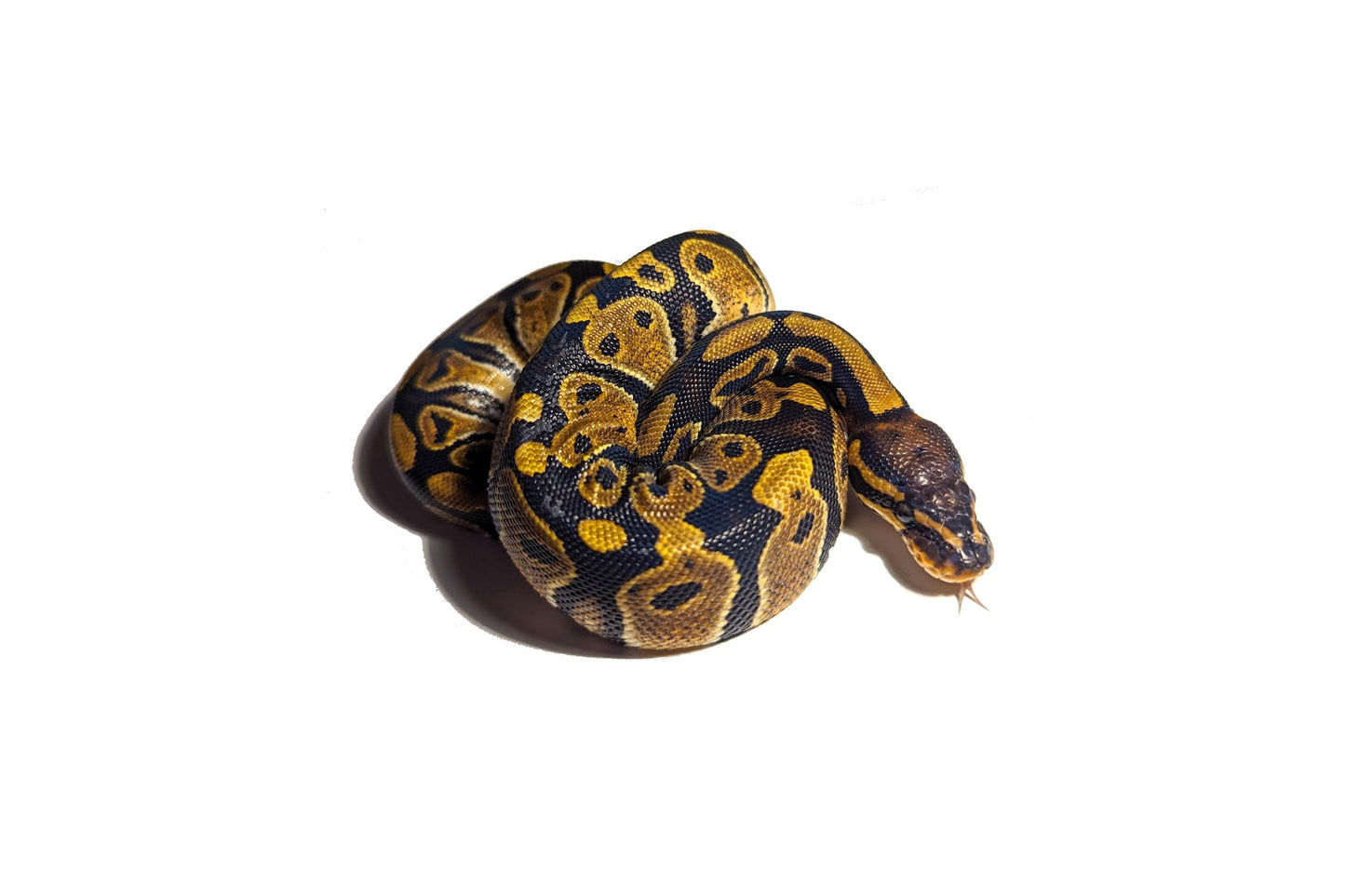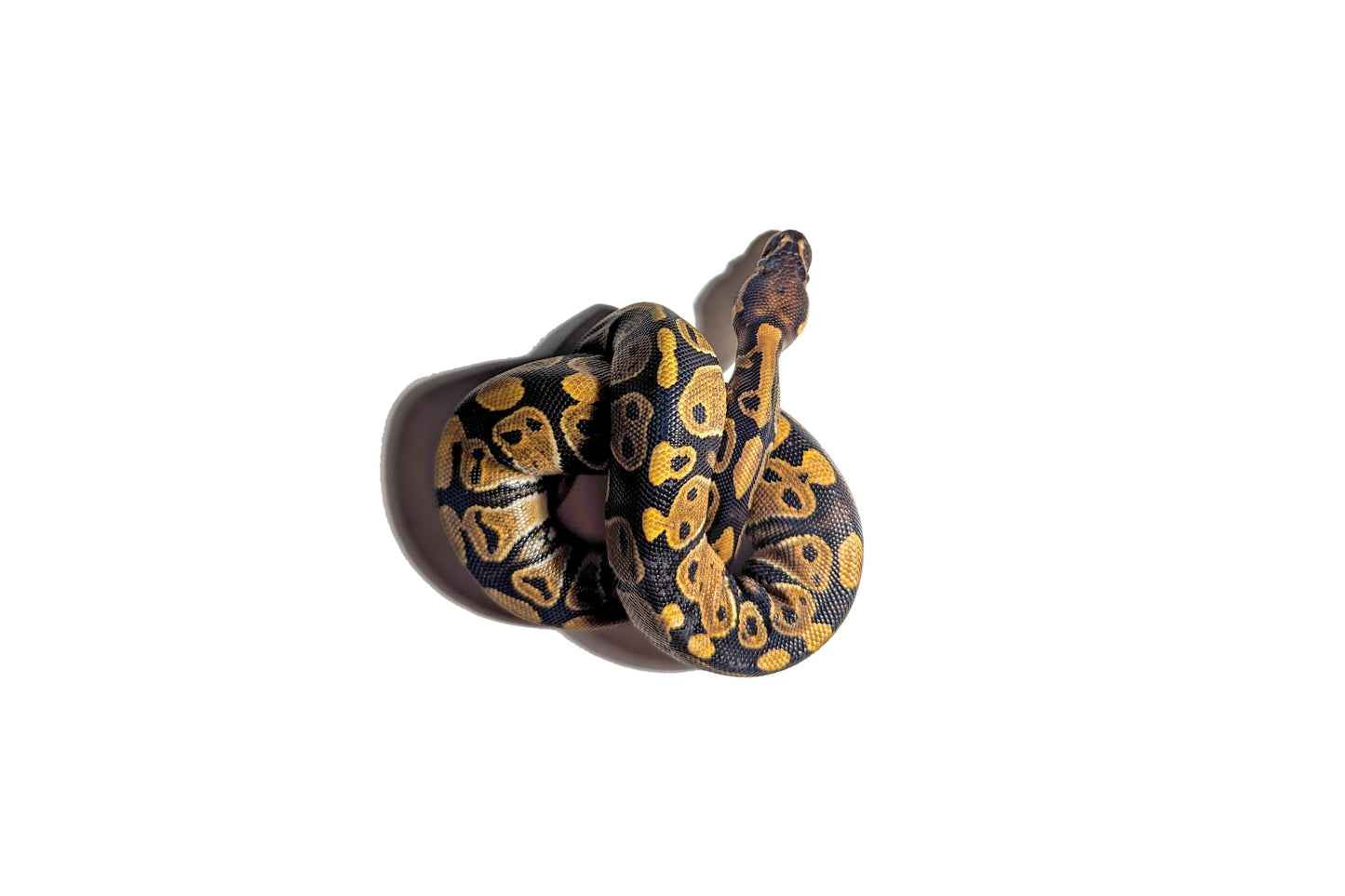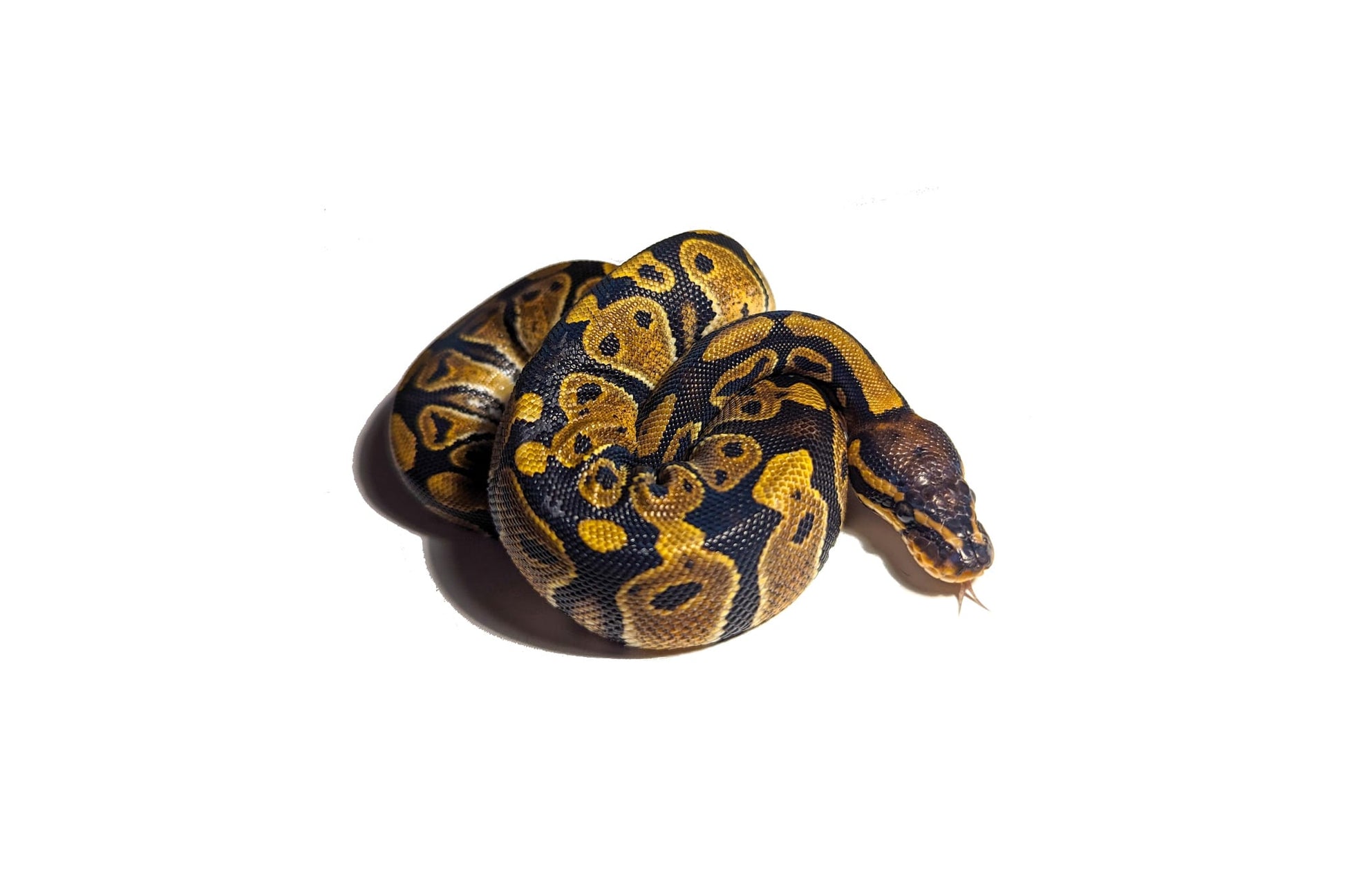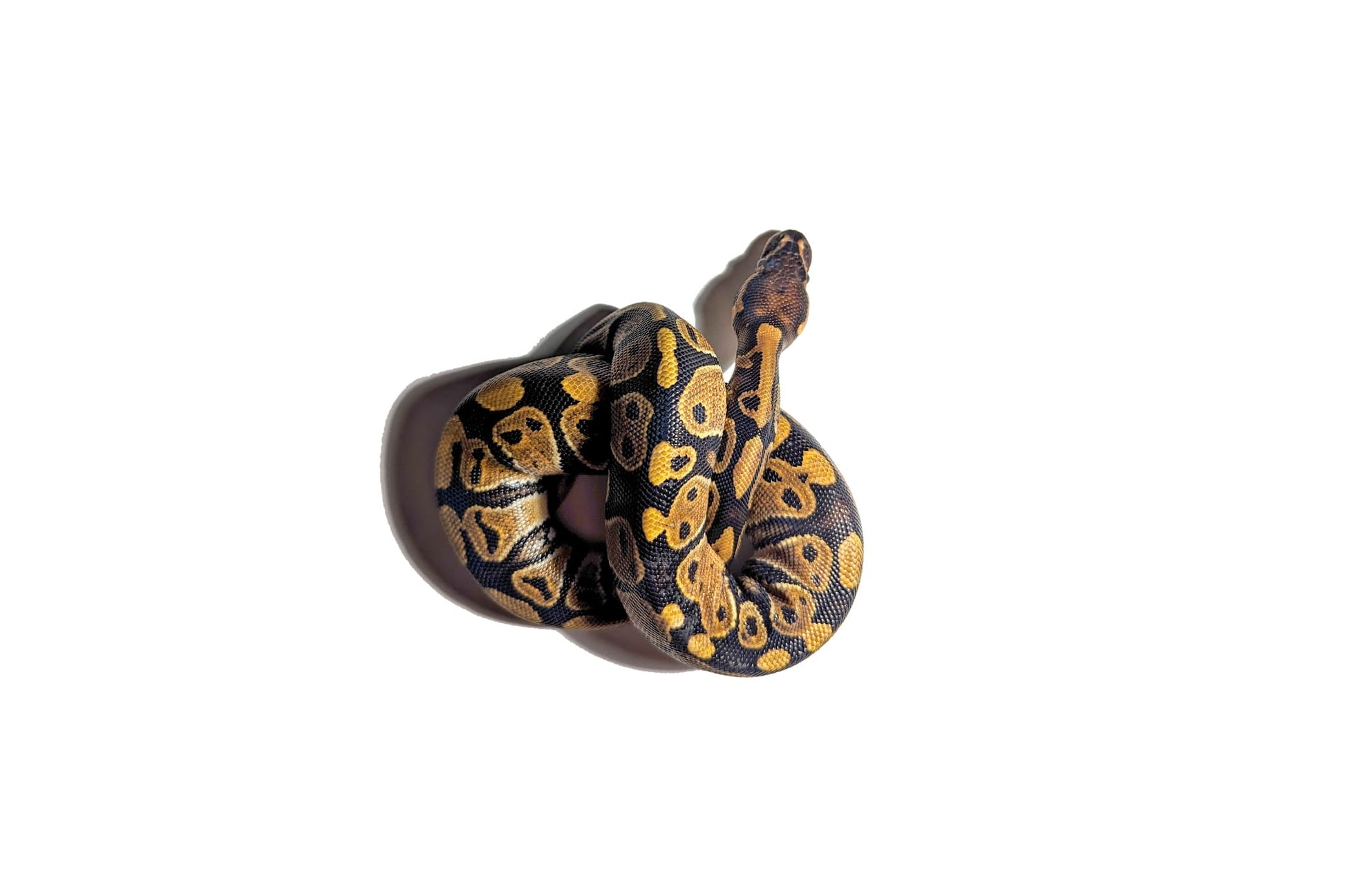1
/
of
2
CareBugs
Hatchling Normal Ball Python
Hatchling Normal Ball Python
Regular price
$50.00 USD
Regular price
Sale price
$50.00 USD
Unit price
/
per
Couldn't load pickup availability
Share
The wild Type Ball Python is the "common morph" or "normal morph" for a Ball Python.
-
Research and Choose a Suitable Enclosure:
- Ball pythons are known for their docile nature and relatively small size compared to other python species. For an adult ball python, a 40-gallon tank is usually sufficient, but larger enclosures are always appreciated.
- Ensure the enclosure has a secure lid to prevent escapes, as ball pythons are known to be good climbers and escape artists.
-
Provide Proper Substrate:
- Use a substrate that retains moisture well, such as cypress mulch or coconut husk. This helps maintain humidity levels in the enclosure, which is crucial for the snake's health. You can always order some from our store in the Enclosure Materials tab.
-
Maintain the Right Temperature and Humidity:
- Ball pythons require a temperature gradient in their enclosure. The warm side should be around 88-92°F (31-33°C), while the cool side should be around 75-80°F (24-27°C).
- Maintain a humidity level of 55-65%. This is important for shedding and overall well-being.
-
Install a Hide:
- Provide at least two hides in the enclosure, one on the warm side and one on the cool side. Snakes like to feel secure, and having hides helps reduce stress. A humid hide is also recommended since they can go there during shedding periods or to hydrate themselves.
-
Establish a Feeding Schedule:
- Ball pythons typically eat mice or rats. Juveniles should be fed every 5-7 days, while adults can be fed every 10-14 days. It's important not to handle the snake for at least 24 hours after feeding to avoid stress. Usually waiting longer is better, that way you can ensure they digest with no issues.
-
Handle with Care:
- While ball pythons are generally docile, each individual may have different temperaments. Start with short handling sessions to allow the snake to get accustomed to you. Avoid handling during shedding or after feeding.
-
Provide a Water Bowl:
- Always have a clean water bowl available. Ball pythons may soak in the water bowl, especially when they are about to shed. Ensure the water is changed regularly to maintain cleanliness. The water bowl should be large enough for the ball python to fit entirely.
-
Monitor Health:
- Regularly check for signs of illness, such as difficulty breathing, mites, or changes in behavior. If you notice any abnormalities, consult with a reptile veterinarian. All of our animals are healthy and free of parasites, however, it is good to do quarantine periods to ensure the animal can go in its temporal or forever enclosure.
-
Maintain a Regular Cleaning Schedule:
- Clean and disinfect the enclosure regularly to prevent the buildup of bacteria. Remove waste, shed skin, and replace substrate as needed.
-
Educate Yourself:
- Stay informed about ball python care by reading books, online resources, and joining reptile forums. Understanding their natural behavior and habitat will help you provide the best care for your snake.
Remember that every ball python is an individual, and their needs may vary slightly. Regular observation and responsiveness to their behavior will help you fine-tune their care routine.




